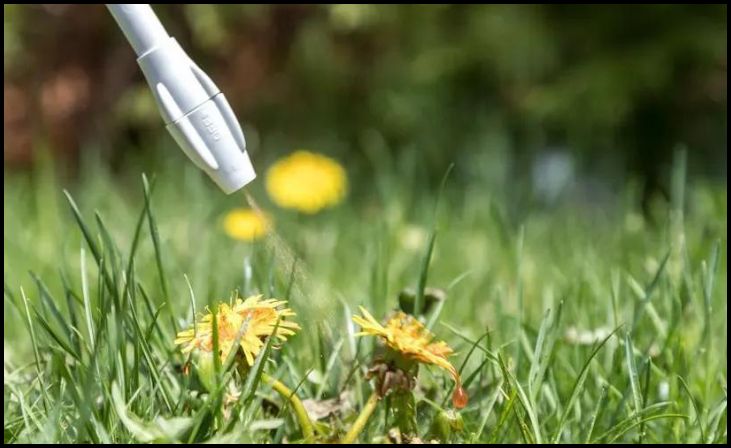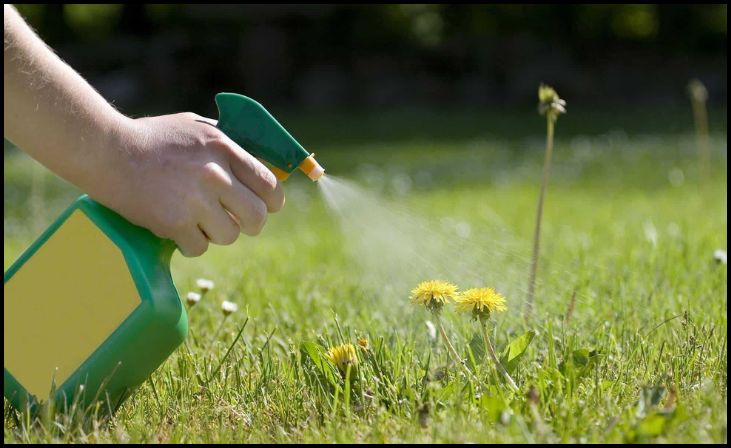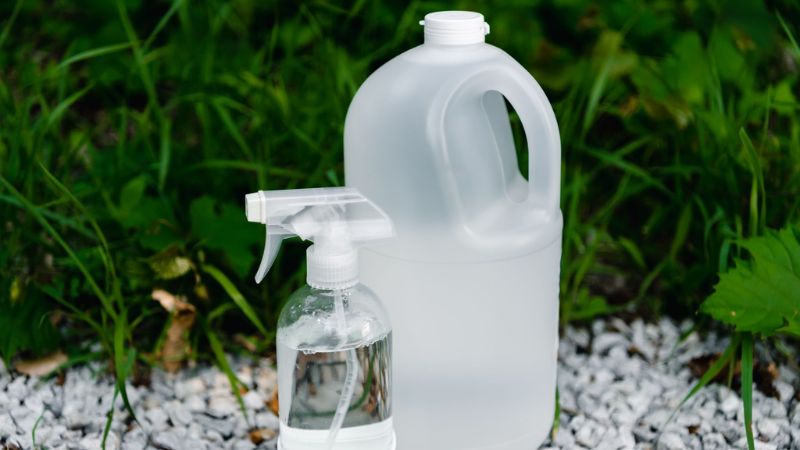Invasive plants can wreak havoc on gardens, lawns, and natural habitats, outcompeting native species and disrupting ecosystems. To effectively control and eradicate these troublesome plants, using the right weed killer is essential. Here are the eight best weed killers known for their effectiveness in destroying invasive plants.
1. Glyphosate-Based Weed Killers

Overview: Glyphosate-based herbicides are among the most widely used weed killers for controlling invasive plants. They work by inhibiting an enzyme essential for plant growth, leading to the death of targeted weeds.
Pros: Effective against a wide range of invasive plants, including broadleaf weeds and grasses. Non-selective, meaning they kill most types of plants, making them ideal for clearing large areas of invasive vegetation.
Cons: Non-selective nature can also harm desirable plants if not used carefully. Some concerns about environmental impact and potential health risks have been raised, although proper usage can mitigate these risks.
2. Triclopyr-Based Weed Killers
Overview: Triclopyr-based herbicides are effective at controlling woody plants and brush, making them ideal for tackling invasive shrubs and trees.
Pros: Targeted action against woody plants while being less harmful to grasses and broadleaf plants. Can be used in both residential and agricultural settings.
Cons: May require multiple applications for complete eradication of larger woody plants. Care should be taken to avoid contact with desirable plants.
3. Diquat-Based Weed Killers
Overview: Diquat-based herbicides are fast-acting and are effective against a broad spectrum of weeds, including both annual and perennial invasive plants.
Pros: Quick results, with visible wilting and desiccation of weeds within hours of application. Can be used in aquatic environments to control submerged weeds.
Cons: Non-selective and can damage desirable plants if not applied carefully. May require repeat applications for stubborn or resilient weeds.
4. Imazapyr-Based Weed Killers

Overview: Imazapyr-based herbicides are particularly effective against tough perennial weeds and woody plants, making them a valuable tool for managing invasive species.
Pros: Long-lasting control, with residual activity that prevents weed regrowth for an extended period. Suitable for use in natural areas, roadsides, and utility rights-of-way.
Cons: Non-selective and can affect non-target plants if not used according to label instructions. Best suited for larger-scale weed control rather than spot treatments.
5. 2,4-D-Based Weed Killers
Overview: 2,4-D-based herbicides are selective broadleaf weed killers commonly used in lawns and turfgrass areas to control invasive broadleaf plants.
Pros: Selective action targets broadleaf weeds while leaving grasses unharmed. Effective against many common lawn weeds, including dandelions and clover.
Cons: Not effective against grassy weeds or woody plants. Care should be taken to avoid drift onto non-target plants, as 2,4-D can damage sensitive vegetation.
6. Atrazine-Based Weed Killers
Overview: Atrazine-based herbicides are selective herbicides commonly used in agricultural settings to control grassy and broadleaf weeds.
Pros: Effective against a wide range of weeds, including common agricultural pests like pigweed and lambsquarters. Can be used in combination with other herbicides for integrated weed management.
Cons: Limited use in residential areas due to environmental concerns and potential groundwater contamination. Not suitable for all crops and vegetation types.
7. Clopyralid-Based Weed Killers
Overview: Clopyralid-based herbicides are selective herbicides effective against many broadleaf weeds, making them useful for controlling invasive plants in lawns and pastures.
Pros: Selective action targets broadleaf weeds while leaving grasses unharmed. Long-lasting control with residual activity that prevents weed regrowth.
Cons: Limited effectiveness against woody plants and perennial weeds. Care should be taken to avoid drift onto non-target plants, as clopyralid can damage sensitive vegetation.
8. Picloram-Based Weed Killers

Overview: Picloram-based herbicides are long-lasting herbicides effective against many tough weeds, including woody plants and invasive species.
Pros: Long-lasting control with residual activity that prevents weed regrowth for an extended period. Effective against many tough perennial weeds and woody plants.
Cons: Non-selective and can affect non-target plants if not applied carefully. Best suited for larger-scale weed control rather than spot treatments.
Conclusion:
Choosing the right weed killer depends on the specific invasive plants you’re dealing with, as well as the surrounding vegetation and environmental considerations. Always read and follow label instructions carefully when using herbicides, and consider integrated weed management approaches for long-term control of invasive plants.

